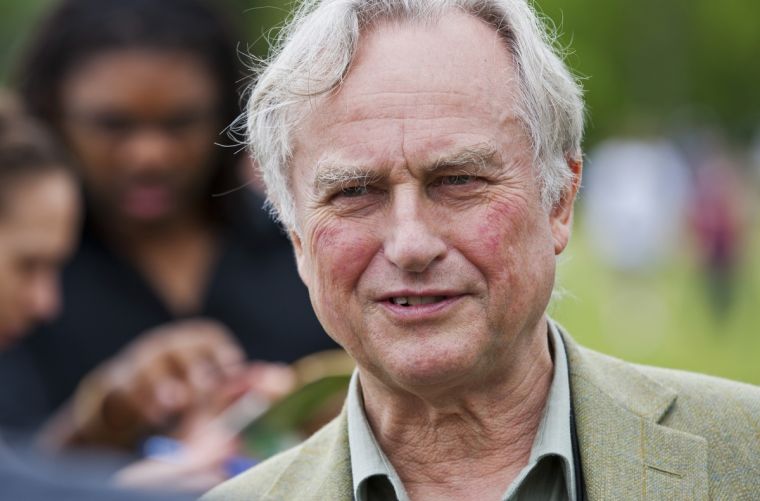Proof of God? 4 ways Christians can share their faith with atheists

If you had only 30 seconds, how would you explain your faith to an atheist?
It's a popular notion – sometimes seemingly true in internet comment threads – that Christians and atheists are at war. Are they locked in conflict, and must they be? Can good dialogue happen, and is conversion possible, or are the warring camps too pervasively entrenched?
Journalist and broadcaster Justin Brierley is well acquainted with atheist and Christian dialogue through his popular radio show and podcast Unbelievable?, which regularly features prominent atheist and Christian thinkers debating philosophy, theology and the evidence for God. Justin has himself interviewed renowned skeptics such as Richard Dawkins and Derren Brown.
At the Christian festival Spring Harvest 2017 in Somerset, England, Brierley shared some reflections on how Christians can better share their faith with those apparently opposed to it.
'It's like we inhabit different worlds', said Brierley, musing on the distance that can seem to pervade between the two groups. It can be hard to imagine people ever crossing the apparently vast chasm of beliefs.
Brierley notes that an experiential aspect of understanding faith is essential: 'You have to step into the faith to really understand what it's about'. Nonetheless, he says that even if dialogue with atheists might not convince them to convert on the spot, you can still try and get 'on the same page'.
'There are no magic answers. It's really about starting a conversation,' he said.
Justin gave four broad pointers for evangelising well, based on 1 Peter 3.15, where Peter gives his famous advice for sharing one's faith:
'But in your hearts revere Christ as Lord. Always be prepared to give an answer to everyone who asks you to give the reason for the hope that you have. But do this with gentleness and respect...'
Gentleness and respect
'The way we say things matter just as much as what we say,' Justin said. Too often, Christian 'debate' with unbelievers can be motivated by an arrogant desire to correct the fact that 'someone is wrong on the internet'. Justin challenged the audience to ask themselves: 'Would spend as long praying for your atheist friends as you do debating them?' The answer may betray one's true priorities.
In clashes that can often become vitriolic and offensive, Christians 'must be the first to extend grace and love', just as Jesus did when he faced abuse.
Conflict may be challenging, and sometimes it may seem impossible that a convicted atheist might ever turn to Christ. Justin encouraged people to be positive and courageous. 'I've met many people who are a million miles away from faith, you'd be surprised at what can happen,' he said.
Reasons for hope
Secondly, Brierley emphasised the importance of giving good reasons for why Christian faith explains the world in a meaningful way. Particularly in the UK, we inhabit a post-Christian, increasingly biblically illiterate society, and as Brierley says, "It says so in the Bible" isn't going to get you very far'.
He highlighted his best two reasons for faith. Firstly, God makes sense of human existence. The universe is so finely tuned, against all the odds Justin said, that the best conclusion is that an intelligent mind created it. He explains this argument in a video that can be watched below, where Justin explains How a Dice can show that God exists.
Secondly, he said, God makes sense of human value. In a purely godless, materialistic world, it's difficult to make a case for meaning and human value that isn't entirely subjective. A God who made human beings in his image, however, gives a profound reason for saying that human rights exist, that people have objective value – which is grounded outside of ourselves.
The point is not to give knock-down arguments that prove the entirety of Christian doctrine to be true, but rather to seek 'the best explanation' for our world and ourselves. Atheism, just like theism, is an attempt at such explanation. The question then ceases to be 'can I prove that the virgin birth happened?', but instead, 'what belief provides the best explanation for the universe'?
Why do you believe?
Justin invited Christians to turn the tables somewhat, and ask their atheist friends – in a non-combative sense: 'Why do you believe what you believe?' Atheism itself is a belief system, Justin said, and requires significant faith. It involves trust that one reality is the case rather than another – and the realities in question have considerable stakes.
Another question to ask is simply: 'What is the point of life?' Justin says that many respond that life's purpose is to 'make your own meaning', but Justin asked, are some meanings better than others? If there is nothing transcendent that could tell you how meaning and value can be found – then how can you know?
Revere Christ as Lord
Justin closed by emphasising Peter's reminder, to 'revere Jesus Christ as Lord'. Such an approach reminds us that 'it's not about us' or our clever arguments. Conversion is a drama of both the head and the heart, and Christians cannot 'argue people into the Kingdom'. Rather they can simply, and mercifully, allow themselves to be used by God in his grace.
Not everyone will have time to engage their friends in the deep debates that Justin hosts on Unbelievable?. Nonetheless, as Justin's show makes clear: good, healthy dialogue alongside disagreement is possible, and can change lives. It simply starts with a little conversation.
You can follow @JosephHartropp on Twitter











